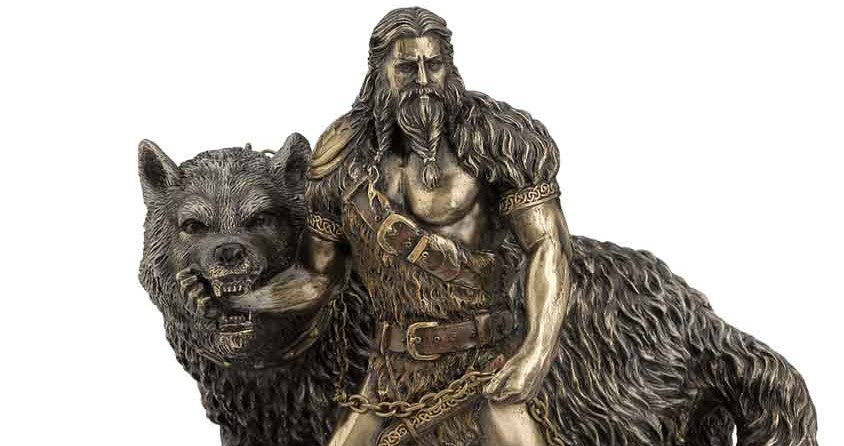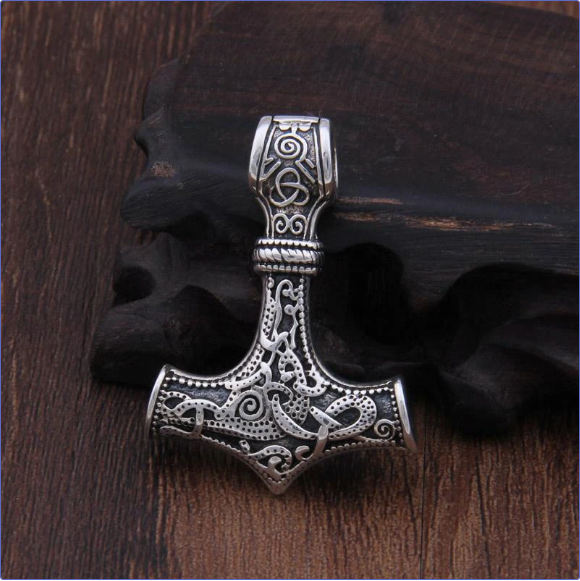Tyr is the God of war, law and justice. Once, one of the most prominent of the Gods in the Norse Pantheon, he gradually assumed a diminished status between Odin and Thor.
Tyr’s role as one of the principal war Gods alongside Odin, Thor, and Freyja is well-documented in the Poetic Edda. War being an important - and usually lethal - activity, it does requires more than one God.
In two different poems, the Sigrdrífumál and the Lokasenna, Tyr’s status as a God of war is referred. In the former, the Valkyrie Sigrdrifa tells Sigurd to invoke Tyr for victory in battle; and in the latter, Loki insult Tyr by saying that he could only stir people to strife, and could never reconcile them.

When the Romans interacted with the Norse people, they identified Tyr with Mars, their own war God. The parallel is very interesting when we realize that Tuesday derives from Old English “Day of Tiw (Tyr)” or Tiwesdæg. In several languages derived from Latin, we have the exact same connection made with Mars, such as Martedì, in Italian; Martes in Spanish; or Mardi in French, all derived from the Latin Dies Martis, “Day of Mars.”
Despite being a powerful war God, the most notable aspect of Tyr is as an upholder of law and justice. For the peoples of the north, war and law were profoundly related to each other and there is no contradiction between God of War and God of Law.
War is not only the bloody mingling of combat, but can also be a decision obtained between combatants, often following precise rules of engagement, something that persists even today. Such rules of engagement were the reason why the day and place of battle were frequently fixed in advance. This was also the source of the tradition of allowing the combat between two armies to be replaced by a legal duel, in which the Gods grant victory to the party whose right they recognize. Words like Holmgang and vápndómr, old Norse meaning “judgment of arms” are not poetic figures, but correspond exactly to this ancient practice.

War can be a very complex affair, but the Gods responsibilities over the matter were clearly divided. Thor, warrior par excellence, is involved in the brutal physical combat; Odin, the wise, in the magical and psychological forces at work; and Tyr in the legal decisions and principles of justice surrounding war.
Tyr’s most well-known tale is the The Binding of Fenrir (read more about it here) with the magic rope Gleipnir, attesting his unflinching pursuit of justice and ability of self-sacrifice for the greater good.
In the tale, the dreadful wolf Fenrir was only a pup, but he was growing quickly, becoming ever more destructive as time passed. The Gods feared for the nine realms, so they endeavored to tie up Fenrir in fetters from which he couldn’t escape. When Fenrir laid eyes on the chain that would eventually bind him, he was suspicious, and declared that he would only allow the Gods to put it around him if one of them would place a hand in his mouth as a pledge of good faith.

In the bargain, if the mighty wolf couldn’t free himself and the Gods refused to release him afterwards, he would bite off the hand. All the Gods knew that the one who would put his hand inside Fenrir mouth would loose it. Only Tyr was willing to pay the terrible price that the contract required. When Fenrir found himself unable to break free, he bit off Tyr’s hand.
With his sacrifice Tyr regularized the binding of Fenrir, rendering it legal: the price to fettering the wolf was paid as agreed. The oath was fulfilled.
This unflinching devotion to the Law and Justice, above and beyond personal safety, is a shinning example to all of us that some things, the best things, require sacrifice to achieve.
Sources
Jesse Byock (2005) Snorri Sturluson, The Prose Edda. 1st. edition. London, England: Penguin Books Ltd. ISBN-13 978-0-140-44755-2
Anthony Faulkes (1995) Snorri Sturluson, Edda. 3rd. edition. London, England: Everyman J. M. Dent. ISBN-13 978-0-4608-7616-2
Simek, Rudolf. 1993. Dictionary of Northern Mythology. Translated by Angela Hall. ISBN- 9780859915137












